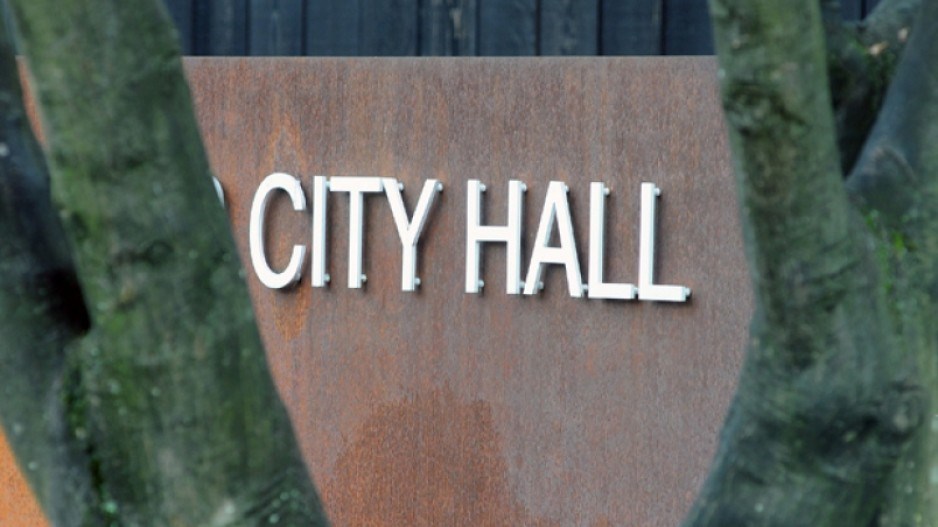News flash to new municipal councils: Life in British Columbia is expensive enough. We don’t need you to pile on.
Fact: Your constituents are dealing with household costs rising faster than at any time in the last four decades. We don’t need you to be oblivious to this.
Second fact: Many of the property owners upon which you are poised to serve higher-than-inflation tax increases are wobbling with variable mortgage rates that are sucking dry their discretionary funds. We think you’re making a major mistake.
City hall by city hall, community by community, councils generally appear more interested in scope-creep, in quickly fulfilling their campaign promises and in passively passing along expense rather than whittling away at costs as many of us have been doing for many months now.
A further fact: This will not be a banner year for the economy. Last week’s provincial budget, itself a spending spree, predicts minuscule 0.4 per cent growth in GDP this year and measly 1.5 per cent growth next year.
Sure, inflation appears to have crested, perhaps yes and perhaps no, but it’s not as if prices are suddenly coming down – they’re just not rising in tandem at the same clip. And the initially errant insistence by central bankers and policymakers that inflation wouldn’t stick has been replaced by sticking it to us with higher interest rates they seem stubbornly insistent on maintaining.
A municipal government is supposed to be more responsive and granular in its understanding of conditions. It isn’t supposed to do a fly-over, it is supposed to be on the ground surveying the situation. British Columbians aren’t going to get tax relief from pretty well any of them.
Nowhere is this disconnect with reality more evident than in our province’s two largest cities, Vancouver and Surrey. Both will deliver double-digit property tax increases, each can point to slightly different causes and effects, neither is burning the midnight oil to avert the shock to the system.
Surrey has no peer in recent political chaos. Old civic slogan: B.C.’s fastest-growing city. New: B.C.’s fastest-growing coffers.
If you’re not keeping track, its 17.5-per-cent proposed increase, dialled back Monday night to 12.5 per cent, owes itself mainly to the fact that a) the previous mayor and council proceeded to construct a local police force to replace the RCMP and wrongly pretended this wouldn’t cost more, b) a member of that council who voted with the mayor broke ranks and ran against him on a campaign to not do what she initially voted to do, c) Brenda Locke’s new council is trying to put the genie back in the bottle and retain the Mounties at a reported rescinding cost of more than $150 million, and d) the province can’t make up its mind on what to enable and what to empale.
In Vancouver, meanwhile, the environment is little better.
The chronic complaint about Vancouver council is about its pious extra-territoriality. It lends its nose more into solving down-the-road climate change than down-the-road potholes. Given more time, earlier councils would have eventually sought status in the Middle East peace process.
That all was thought to be coming to an end Oct. 15 when the slate of the newly formed ABC (A Better City) party under Ken Sim crushed the political opposition and won majority seats on council, the park board and the school board.
One would have thought that in the first 100 days it would have identified, say, 100 spending decisions it could skewer and sold the obvious to the city that turned to it for sanity – that enough is enough, times are tough, and even though some discomfort is involved, we’re going to show you how to run a tight ship.
Instead, it has passed the city’s largest budget ever.
A united community agreed: Didn’t see that coming.
If you’re not keeping track on this, either, Vancouver’s 10.7-per-cent increase announced last week owes itself mainly to the fact that a) the structured perennial municipal extravagance is a difficult habit to break, b) choosing to fulfill the campaign pledge to finance 100 new police officers and 100 new mental-health nurses veered out of its lane and its ideal ledger, c) that in supporting this budget, three ABC councillors who were part of the previous council now find themselves arguing for things they argued against last term, and d) the new council couldn’t swiftly identify what to finance and what to flee.
Just before Surrey and Vancouver reach into your pockets, both are pointing fingers at the previous regimes.
While there ought to be a statute of limitations on how long politicians under fire can blame their predecessors, we are little more than 100 days since the elections, so denunciations of earlier councils remain fair game.
But between the election and the budget proposals, councils all over should have been levelling with communities that new projects are more wisely deferred in these challenging economic times. They ought to have focused on cutting costs rather than layering line items atop them.
What would be good to hear from every council over the inflation line is that, like every household and business, the year’s budget is in place only as a formality – a prelude to the pruning to take place as the year progresses, of an eventual surplus that can forestall further big bills.
Of course, that won’t avert the nasty tax notice in weeks ahead. As we always say about the local sports scene: There’s always next year.
Kirk LaPointe is publisher and executive editor of Business in Vancouver and vice-president, editorial, of Glacier Media.



